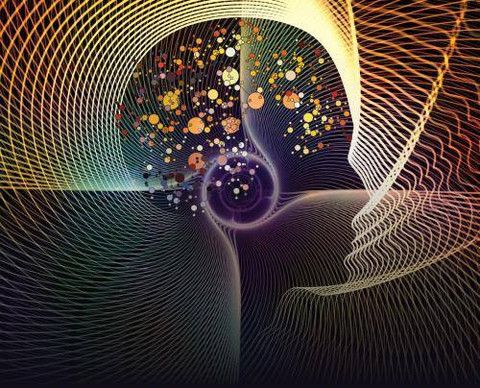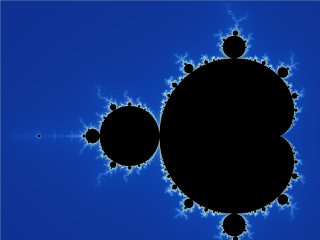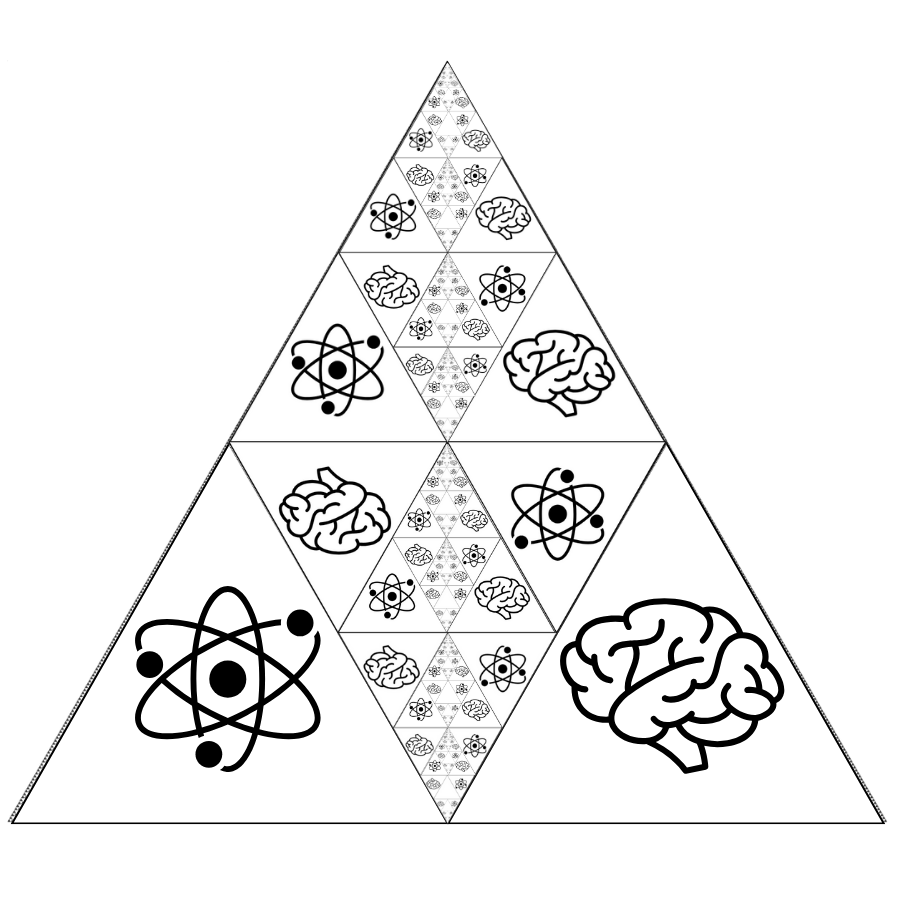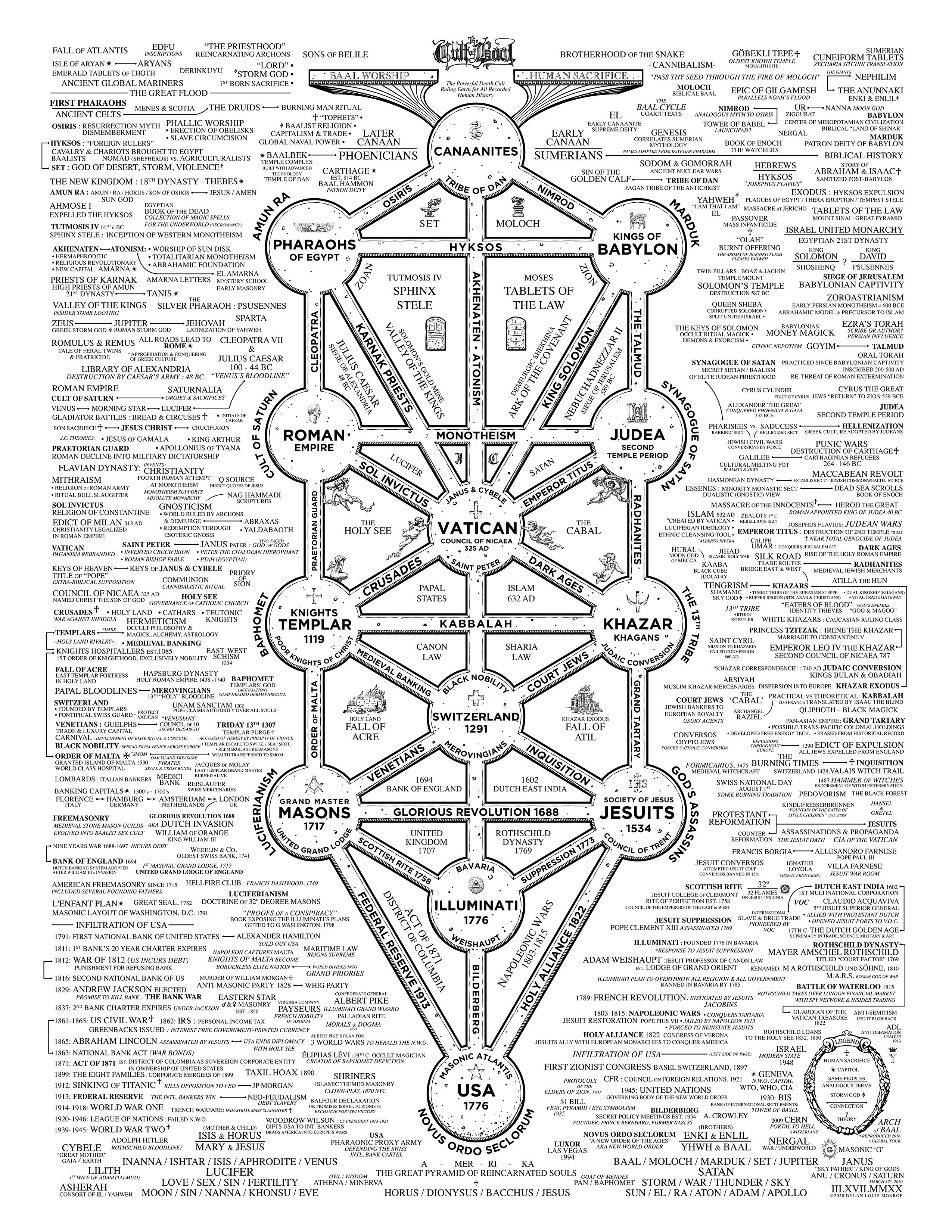God Concept

Your belief system creates a mental model of the world that forms the lens through which your life is viewed. This has traditionally been organized around the concept of a supernatural "god", but there are many secular forms it can take.
"To fall in love with God is the greatest romance; to seek him the greatest adventure; to find him, the greatest human achievement." -Saint Augustine
The emotions and morality you associate with your god concept are single the biggest influence on how you experience consciousness. It colors your experience of the present, the future, and even your memories. These universal associations form your Primal World Beliefs.
Our Apophenia Shaped Hole
The idea of a god-shaped hole is a popular saying used to imply that god is necessary for us to feel complete and emotionally fulfilled as people. It is often used in addiction counseling to explain the need for a "higher power" in the recovery process. Anything else we try to use to fill that hole will never truly satisfy us, so we end up wanting more and more.
It originates with Blaise Pascal's defense of Christianity in Pensées.[1]
“What else does this craving, and this helplessness, proclaim but that there was once in man a true happiness, of which all that now remains is the empty print and trace? This he tries in vain to fill with everything around him, seeking in things that are not there the help he cannot find in those that are, though none can help, since this infinite abyss can be filled only with an infinite and immutable object; in other words by God himself.”
Assuming this phenomenon is psychological and not supernatural, what does it truly mean to fill the god-shaped hole? To answer this question we need to look at how the concept of god is constructed by the mind.
Apophenia is the name for our natural tendency to look for meaningful connections between unrelated things. It is a side-effect of how the brain uses associations to store information, generalize knowledge, and perform reasoning. Apophenia's ultimate goal is to create a metanarrative of everything that can connect all of reality to a single concept or story that makes sense of existence. Religion provides the brain with a read-made metanarrative that explains creation, provides meaning, and relates to everything in the universe using the concept of an omnipresent god. This gives the apophenic urge a socially acceptable outlet and scriptural roadmap, so that pursing these connections ends up deepening your moral convictions and reinforcing pro-social behaviors.
What happens when we give up the roadmap of religion? Society is in the process of finding out. The apophenia instinct is still strong, but now it is no longer constrained by convention or conviction. Science doesn't really provide a roadmap for connecting all of its ideas in a way that makes sense to most people. People will continue to make connections, and the master metanarrative at the heart of their belief system is called the "god concept." The god concept takes many forms today, since so many are creating theirs with creative apophenia instead of a tried and true roadmap. Not all of these gods are great.
Forming a God Concept
Belief in a "god" creates a self-organizing psychological concept in the mind of the believer. Since god is the creator of all things, a part of all things, and controls everything in the universe, the believer is able to associate god with every aspect of their environment and life. When you create a concept with the property of being everywhere, you naturally associate it with everything.
The believer's emotional understanding of what god is colors their view of how every part of the universe works, and why everything happens in their lives. It becomes a central hub meme that connects to every part of the mind through association, driven by the apophenia instinct.
The absence of a god concept is less of a "god-shaped hole," and more of a state of mental disorganization that manifests as a lack of purpose, being prone to impulse and temptation leading to addiction, moral indifference, cynicism, nihilism, and depression. The god concept doesn't just organize itself, it ends up helping organize all of your thoughts.
Benefits to the Believer

Creating a god concept confers many well-documented psychological benefits to the believer. [2][3][4]
Seeing god as the ultimate source of goodness links the god concept to the brain's pleasure centers, releasing pleasurable neurotransmitters each time you think about god. And since god is part of everything, the adept believer can trigger that pleasure response in any situation, even the most dire.
Things that are painful or arbitrary can be justified as being part of "god's plan", helping to alleviate questions of "why?" that have no answer and can lead the mind into spirals of depression. God is the ultimate thought-terminating cliché, and for questions that have no answer this can be a valuable psychological tool to avoid unpleasant feedback loops. It's "shit happens" on steroids!
Memory works by association. All memories are encoded through their associations with earlier memories and ideas. The god concept assists with memory and understanding by creating a universal pegboard on which to hang new information. When you have an accurate model of how the universe is ordered, there are fewer exceptions to the pattern that need to be remembered.
There are many others. This page focuses on the benefits of universal goodness and optimism that are cultivated by the belief in omnibenevolence.
The Primal World Beliefs page describes the theory developed by the UPenn Positive Psychology team that demonstrates the many benefits that a "good world belief" provides.
The Form Matters Less Than The Function
The important thing is to have a concept of universal goodness, not the particular cultural form it takes. It can also be secular and not supernatural or religious. Confusion over this fact leads to increasing strife in a global society where we are constantly confronted by dissimilar beliefs. When science has become the primary source of truth, the traditional god concepts become harder and harder for each new generation to adopt.
To be perfectly clear, an optimistic secular humanist belief system is an omnibenevolent god concept! A lot of atheists get hung up on this point because they cannot separate god from the supernatural. You typically have to reinforce this point several times before they accept it, and some who have unusually strong allegiances to their definitions never do.
The Fractal Universe God Concept

metaculture uses pantheism and the fractal organizational symmetry of the universe as a scientific metaphor for the god concept. The universe is self-organizing, it has self-similar patterns that repeat themselves from the subatomic level all the way to supergalaxies, it conforms to the rules of logic, it's infinitely complex but based on a few simple rules.[5]
Seeing the universe as one big fractal pattern helps make sense of the rational order of the scientific universe while imbuing it with the beauty and wonder that people have come to expect from their spirituality.
Hypertext representation of associating god/the universe with everything
Making Sure God is Good

Honing your optimism requires mindfulness. The believer must tell themselves that god is good over and over like a mantra in order to reinforce the link between everything in the universe and those happy brain centers.
This is built into many traditional rituals, prayers, and meditations. For example in Arabic culture, Allahu Akbar ("god is the greatest") is used throughout everyday conversation. These can be referred to as "omnibenevolence mantras".
Doing this eventually turns the brain into an automatic generator of optimism and happiness. Adopting a god concept and associating it all the good things we seek in life is the greatest act of selfishness one can make, for it is the path to the greatest amount of joy life has to offer.
Heaven is the state of mind of being one with "god" and living according to "god's plan," which happens to be identical to evolution's plan and the secular humanist commitments. Build community, family, friendships, seek knowledge, and help others. It's not impossible to figure this out without god or religion, but doing so usually ends up turning into a personal belief system, which is just another form of the god concept.
Living without a god concept isn't always hell, but life tends to be harder without your automatic happiness switch turned on.
Science says pick a happy god if you want to be a happy human. Once again, see Primal World Beliefs for the research that backs this up, and a framework for identifying the aspects of universal goodness we should focus on.
From Concept to Reflex
Understanding the concept of a universal god intellectually is only the first step. Each time you look at some object in nature, observe its fractal form, and think about the wonder of the universe, you build the neural pathway that forms the god concept. After several repetitions it gets easy. After putting in your "10,000 hours" it becomes second nature, a reflex reaction that happens without thinking about it.
What starts as an intellectual pursuit becomes automatic mindfulness, where the reactivity of our habitual response is channeled away from emotions like anger or fear, and towards presence, appreciation, and enjoyment of each moment. When anything you experience reminds you of the wonder of the universe, negative reactions are minimized and the mind is free to focus.
It's Basically the Holy Spirit

In the Christian Trinity, the god concept is represented by the Holy Spirit. See the Sierpinski Trinity for a detailed analysis of how the Holy Spirit is an allegory for the god concept.
The Evolving God Concept
As our knowledge of the universe advances through the ages, we are able to conceive of a god that is "more generalized" than the ones that came before it. This is similar to how our theories in science become more generally applicable. Newton explained large objects, Einstein generalized it to really fast ones, and quantum mechanics generalized it to tiny ones. Eventually a theory of everything will create a single framework for understanding all of these.
Knowledge of god proceeds the same way. We started with Animism where everything had its own individual spirit. Eventually these were formed into categories with Polytheism and finally generalized to a single god with Monotheism. The next step is to create a generalized theory of science and spirituality that resolves all of the monotheistic traditions as well as science into a single, universalist, unified theory of everything. metaculture refers to this theory, whatever form it ends up taking.
This is very similar to the concepts of Progressive Revelation in the Bahá’í tradition, Gebser's Structures of Consciousness, or Fowler's Stages of Faith.
The Theory of Everything Instinct
The Theory of Everything page examines how the instinct to form the god concept leads to the modern search for a theory of everything in physics, as well as a metanarrative-based theories in philosophy and religion.
Other Modern God Concepts
As our society becomes more diverse and we no longer grow up knowing only people who believe in the same religion, and science seems to have an explanation for everything that once was god's domain, it becomes increasingly difficult to construct a proper god concept based on traditional religion and scripture. Since our brain insists upon forming connections in order to try to make sense out of the world, if it is not given an accurate model it will form an inaccurate one.

Conspiracy Theories
The desire to connect all of the randomness of the world and all the forces that seem to be arrayed against our personal fulfillment as humans leads many down the rabbit hole of conspiracy theories. Social media algorithms have not helped this either.
The fractal god concept offers an alternative--the ultimate fractal universe conspiracy. Everything in the ENTIRE UNIVERSE is part of one, humungous fractal pattern controlled by a master generating equation and it is conspiring to make you happy! Put apophenia to work for you! Turn that paranoia into pronoia!
The Devil
Help the poor souls who envision a wrathful god for their existence must truly be hell. Focusing only on the evils of the world and the pain that we naturally wish to avoid can turn the tables on god, triggering fear and anxiety everywhere. The devil isn’t the instrument of god’s vengeance, it’s the belief in a vengeful god.
This provides an alternate interpretation for "devil worship." It doesn't refer to people who actually celebrate evil and consider Lucifer their deity, since nobody really does that (not even actual Satanists!). It refers to those who preach fire and brimstone. It refers to those who get their authority from fear and threats instead of love and altruism. Devil worshipers pay lip service to god, but their mind is always thinking about the devil. It's the wolf you feed.
Graphic Novels
Superheroes are basically a modern polytheistic mythology, with exciting and fantastical stories that kids enjoy, and morality tales of good triumphing over evil. As with most polytheistic theologies, it becomes increasingly hard to keep track of what is canon and what is not, the stories start to get confusing as new authors contradict the old, and it relies too heavily on CGI instead of well-constructed storylines.
Jordan Peterson and the Manosphere
Since progressives aren't doing a good job at presenting their ideas in a way that is easily consumed by young men, and often seem to frame things in a way that is specifically designed to turn off the adolescent male mind, the void has been filled by the right-wing faux philosophy of Jordan Peterson and manosphere grifters like Andrew Tate. They peddle easy, hierarchical belief systems that make lonely, depressed young men feel like they are "alphas", and promote a traditional worldview that lends itself easily to misogyny and racism. They create a god concept that sees everything in terms of dominance hierarchies and competition, in a way that merges covert fundamentalism with libertarian capitalism. 'Tis a scary god.
Trauma and Disorder
An increasingly popular god concept in the information age is trauma and mental disorders. By identifying some formative trauma that has led to post-traumatic stress, or identifying one's personality with disorders like depression, OCD, bipolar, etc., these can become associated with an increasing number of trigger stimuli, until the whole world is full of fear and anxiety and pain. It's not a good god, but it is the god of many people. Of course, since free will doesn't exist, it just means we have a really terrible and traumatizing culture that leads people to believe in a trauma god over an omnibenevolent one.
Conclusion
Using the fractal god concept, metaculture creates a solid mental framework for understanding the universe and triggering universal positivity while eliminating the cognitive dissonance required to hold supernatural belief systems in an age of science, as well as the dissonance required to deny the inner truths of our traditions.
It generalizes the concepts of science, the universe, morality and spirituality into a single working theory, allowing the expansion of the god concept into further reaches of the brain and increasing its effectiveness.
This hypothesis is being proposed based on conclusions drawn from a wide range of scientific and spiritual literature. William James[6] and Paul Bloom[7] have proposed similar theories of omnibenevolence. It is definitely subject to confirmation through experiment, and Primal World Beliefs theory has provided a framework for this by confirming the psychological benefits of belief in universal goodness. This hypothesis simply proposes that belief in an omnibenevolent god helps the "Good World Belief" self-organize in the brain. If for some reason future evidence disproves this, or provides a better framework for understanding the mental health effects of belief in god, then this page can be edited.
What if God Was One of Us?
For a Pantheist, god is all of us, not just one of us.
Hidden Brain - Our God-Shaped Brains
These videos detail the social value of participation in organized religion, which is the aspect of the impact that belief in god has on happiness that science has been able to study so far.
Not sure why the thumbnails for these videos are so similar. Maybe it's a 90s thing.